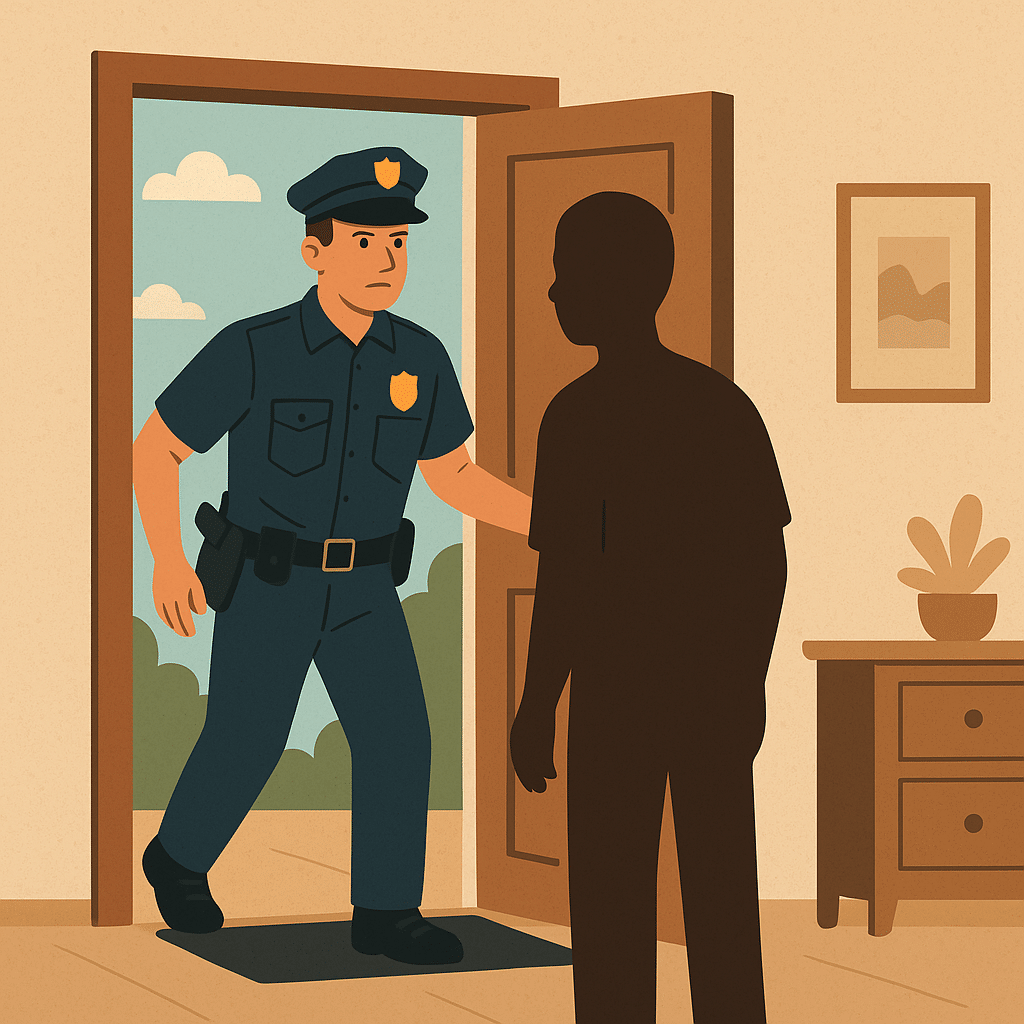
Your home is your castle — and in Maryland, the law strongly protects it. The Fourth Amendment to the U.S. Constitution and Article 26 of the Maryland Declaration of Rights both guarantee you the right to be free from unreasonable searches and seizures. That means police usually cannot enter your home without a search warrant. But there are exceptions, and knowing them can make all the difference in protecting your rights.
When Police Can Enter Without Your Permission
In most situations, police need a valid search warrant signed by a judge to come inside. However, Maryland law and court decisions recognize certain situations where an officer may enter without one:
- Exigent Circumstances
- If police believe someone inside is in immediate danger, evidence is about to be destroyed, or a suspect is fleeing, they may enter without a warrant.
- Example: Officers hear screaming and breaking glass inside your home.
- Hot Pursuit
- If an officer is actively chasing a suspect who runs into a home, they may follow without a warrant.
- Plain View Doctrine
- If an officer sees evidence of a crime from outside — like drugs or illegal weapons visible through a window — and has probable cause, they may enter.
- Consent
- If you or someone with legal authority over the home voluntarily invites the officer in, they can enter without a warrant. This consent must be freely given — not coerced.
What If None of These Exceptions Apply?
If a police officer enters your home in Maryland without a warrant and without a valid exception:
- Evidence Can Be Suppressed
Anything seized during an illegal entry is likely inadmissible in court under the exclusionary rule. The U.S. Supreme Court’s decision in Mapp v. Ohio established that evidence obtained through unconstitutional searches and seizures cannot be used against you in state court. - Your Case Could Be Dismissed
If the suppressed evidence was critical to the prosecution, the State may be forced to drop the charges. - You May Have a Civil Claim
Under federal law (42 U.S.C. § 1983), you may be able to sue for violation of your Fourth Amendment rights. - Internal Discipline for the Officer
The officer may face investigation or disciplinary action from their department.
How Maryland Courts Handle Illegal Home Entries
Maryland judges take unlawful entries seriously. In Southern Maryland — including Prince George’s, Charles, Calvert, and St. Mary’s Counties — courts often evaluate:
- Whether there was true probable cause
- If the claimed emergency was legitimate or exaggerated
- Whether the officer could have obtained a warrant instead of entering immediately
If your attorney can prove the entry was unjustified, the evidence gathered is usually thrown out.
What to Do If This Happens to You
If a police officer enters your house without permission in Maryland:
- Stay Calm – Do not physically resist; this could lead to separate criminal charges.
- Do Not Give Consent – Politely state, “I do not consent to a search.”
- Document Everything – Write down names, badge numbers, times, and exactly what happened.
- Call a Criminal Defense Lawyer Immediately – An attorney can challenge the entry and fight to have illegally obtained evidence suppressed.
Protect Your Home — Protect Your Rights
At Southern Maryland Criminal Defense, we defend clients in Prince George’s, Charles, Calvert, and St. Mary’s Counties against charges that often stem from questionable police searches. If an officer entered your home without permission, you need an experienced Southern Maryland criminal lawyer who knows how to challenge unlawful searches.
📞 Call us today to schedule your confidential consultation and protect your rights from the start.
